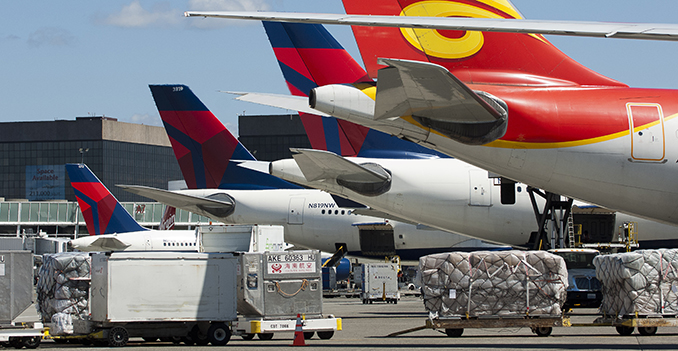SEA-TAC Airport, managed by the Port of Seattle, has partnered with Alaska Airlines and Western Washington Clean Cities to convert all their vehicles from diesel to electric power. They are installing nearly 600 electric charging stations to facilitate this. This project is supposed to save the airport $2.8 million in fuel costs & reduce greenhouse gas emissions by 10,000 tons.
As part of the partnership, Alaska Airlines has agreed to use 204 electric vehicles in its ground operations. As of now, it is the only airline in the program but more are scheduled to join later in the year.
I did not realize that the Port of Seattle seems to have many sustainability projects that have already been implemented or are still in development. For example, they have a fleet of compressed natural gas (CNG) buses to transport travelers between the airport terminal to the LEED-certified rental car facility. In addition, all taxis that serve the airport must be CNG taxis or have fuel-efficient engines. They have an outline of 25-year environmental goals related to pollutants, energy, wildlife, noise, and recycling.
I think this project is interesting because when people think of sustainability, we tend to think of the environmental cost of flying the planes, but we often forget about the airport operations themselves. It seems that the Port of Seattle is fairly committed to sustainability as not all of their green initiatives are economically driven. Converting vehicles to electric power will save fuel costs, but restoring wildlife habitat or requiring taxis to be fuel-efficient does not have any direct economic advantage. It will be interesting to see if other airports will follow SEA-TAC’s green example.

Truly captivating, I appreciate it!